Television reporter, speaker, author and consultant—seems like a pretty daunting list of careers, doesn’t it? But for nutrition and wellness expert Dr. Zelana Montminy, it’s all in a day’s work. Dr. Z (as she’s known to clients and viewers) spends her time filming her TV show, working on speeches and articles and catching up on research. Oh, and did we mention that she does this all while taking care of her 21-month-old son?
As a result of growing up in a home where good nutrition was an important part of the daily routine, Dr. Z has always been interested in health and wellness. After studying psychology in school, she has since been able to combine her two passions into a far-reaching career. Her academic background gives her an added boost of expertise on the topic, something she considers essential for her job, along with being able to balance multiple roles and thinking on her toes.
Juggling all of her different roles can get overwhelming at times, but Dr. Z is grateful to have a career that allows her to help people maintain a healthy lifestyle. Her “living” career is constantly moving, growing and changing. Although she may not always know what’s next (beyond her upcoming book, that is!), she’s just happy to be enjoying the journey.
Her Starting Point
Many people find the transition between college and “real life” a bit daunting. Can you tell us about your journey between the two? What was your first job post-college?
It's definitely daunting. My first job post-college was project manager of a breast cancer survivor study at UCLA looking at how survivors recovered psychologically. I wasn't sure if I wanted to go the clinical or research route with psychology, so I was exploring the research angle and soon realized that working with people directly was the direction I wanted to take. I was fortunate to be able to explore various angles of the industry through internships I had before, during and even after college. Those opportunities gave me priceless insight to help me shape my future career.
TV reporting is a very dynamic career. What about it sparked your interest? When did you feel like this was the right path for you?
I wanted to get my message about health and wellness out to a broader audience, but didn't quite know how to make that transition from an academic career to the media space. A series of random (although, perhaps not so random!) encounters, supportive mentors and hard work led me in that direction in the end.
Where did your health and wellness philosophy originate? What influenced you when you were deciding what field to focus on?
I'm extremely fortunate that good nutrition was an inherent part of my childhood growing up. My personal health philosophy formed over time as I became more knowledgeable in the field and did enough research to be able to navigate what's real and what's just hearsay. I was always fascinated by human behavior, and was curious about how what we eat effects how we feel and behave. I saw examples of it every day, especially in college with myself and among my friends.
I also became increasingly aware of how much our outlook shapes our lives, as well as spurs success, and wanted to explore the science of happiness in an academic way. The field of Positive Psychology was just gaining traction at the time I started graduate school and I was so excited about the new focus on people's strengths and potentials.
Her Big Break
Could you let us in on any stumbles you might have made in your high-profile position? How did you get through them?
The media world is never easy to navigate. It so easy to take things personally and to second-guess yourself—it's crucial to move on and know that when one door closes, another one opens. Even if you don't see it in the moment, change brings opportunity if you're open and able to see it in a positive light. When I was pregnant with my first child, the network I was working with cut some of my content since I was primarily doing fitness at the time. But that change—although it felt negative at the time—opened the door to more health related content, which is my primary area of interest, and led me to create a fitness and nutrition DVD series that guides women through all stages of pregnancy and beyond. So it was a win-win!
If we had the chance to peek at your schedule, what would an average day look like?
Every day is different for me given the nature of varying shoot schedules and activities. But on a light shoot day, I have a 21-month-old at home, so I always start the day early with lots of playtime and a busy breakfast that I make for the family. I'm generally out the door to the studio after that for hair and makeup, then shoot in studio a segment or two, depending on the day, which can take a few hours. I write my own scripts for much of my content, so days of work has gone into the creation of the segment as well.
After the shoot I'll head home to be with my son and work from my home office on upcoming speaking engagements or any press articles I have in the works, catch up on latest research or work on my social media and partner sites. I try to do something active when I can, so after my son's nap I'll take him out for a walk or try to make it to a yoga class after my shoots.
But many days it's just go, go, go all day in studio, or running around the city to meetings, so it just really depends on the day!
How do you stay on top of what is new and innovative in nutrition and healthcare? It feels like there’s always something new coming out—how do you distinguish between what is a fad and what has staying power?
I read all the latest research in my genre and make it a point to stay abreast of the most current trends. Most things out there are fads, especially if they're promising quick and easy results. If it seems too good to be true, it usually is! It's tough to generalize results and understand complex research without any real health training, so the media tends to often exaggerate or misinterpret results without necessarily meaning to. Given my academic background and experience, I'm able to look at a study and know how valid the results are pretty quickly. My viewers and fans really trust me to give them the most accurate information out there and I'm really grateful for that.
What is the most challenging part of your job? How do you keep yourself from getting burnt out?
The most challenging part of my career is balancing all of the various elements of what I do, whether it's being on television, doing speaking engagements, corporate consulting work and, of course, all while staying active on social media and continuing to interact with my viewers. It's very dynamic, which is part of what I love about it, but also can be overwhelming at times. I try to avoid burnout by just focusing on what I'm doing in the moment, making lists of action items, staying efficient and tackling priorities first as best I can.
Her Perspective
What skills are essential to working as a health and wellness reporter? Do you think having an industry niche is important?
I think it's important to have credentials and passion in the health and wellness space if you're going to report on the topic. There are too many people out there who claim to have expertise but don't have the basic knowledge of the topics to be able to report on information with a critical eye. I'm all about self-education, and it's important to keep it up and continually learn, but having an academic foundation is very helpful.
I also think that being able to balance various roles efficiently and to be able to think rapidly is important. Topics shift when you're on camera and it's important to be able to be quick and knowledgeable with your answers. I was shooting a live national morning show and the producers told me they'd talk about a certain topic, but the hosts totally shifted mid-segment to a completely different topic, so it was important for me to come up with good answers quickly!
Writing skills and public speaking experience is very helpful, too, as well as any media training. An industry niche is important if you're totally committed to the niche you choose, but it also can be limiting if you're not sure.
Translating passion into a career is tough. What advice would you give to women trying to figure this out?
Once you've identified your passion, I would advise women to get creative about translating it into a career. There's no "one" path to take, and nothing is just going to happen on its own. I suggest being proactive about creating opportunities for yourself by thinking out of the box while always being authentic and true to yourself and your mission.
If you could pin your success down to one thing or one moment, what would that be?
Hard work! There are so many moments that I can say were pivotal in my life that helped me get to where I am today. But it's really an intricate web of so many different moments and elements. I tend to view my career as being "alive"—it's always moving, growing, changing—so I continually work hard to stay true to my message, keep producing the most interesting and exciting health content there is, while also remaining accessible to my viewers and fans.
And finally, what do you wake up looking forward to? What’s next for your career?
I'm so passionate about all elements of what I do and wake up every day grateful I'm able to have a career that supports people's journey to adopt and sustain a lifestyle based on making healthy choices for their body, mind and spirit. I live what I preach and I get such joy translating all of the complicated and conflicting health information out there in a reliable and accessible way to my audience. I'm in the process of writing a book, so that's something very exciting coming up for me—I can't wait to share it with all of you!
You May Also Like
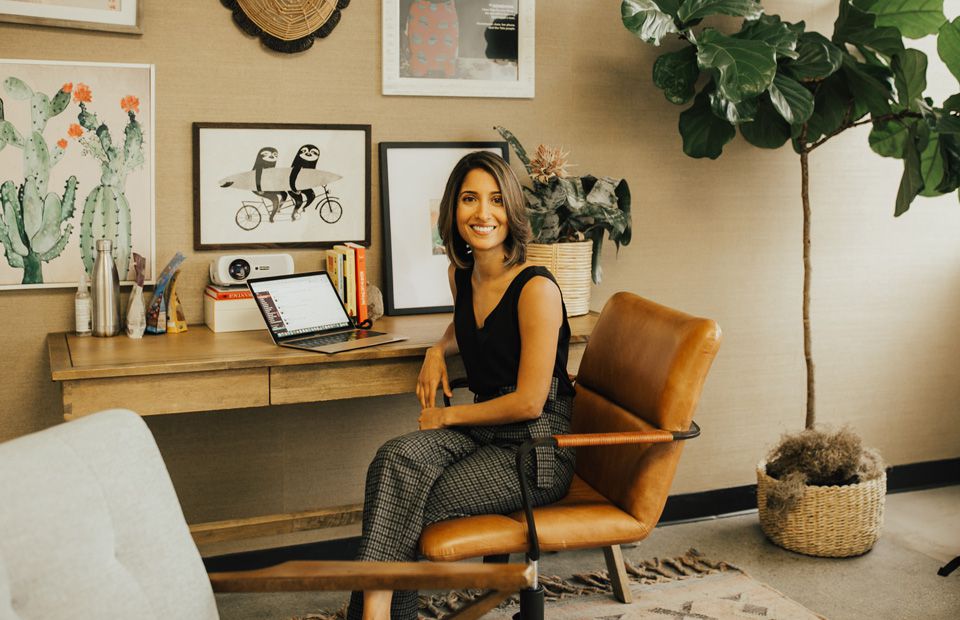
Technology
A Tech Founder on Why Being an Outsider Is a Strength
"I actually think most successful founders are rebels, of a sort. We’re trying to do new things and take on entrenched systems or ways of thinking. What makes me and our company different is that we’re outsiders."
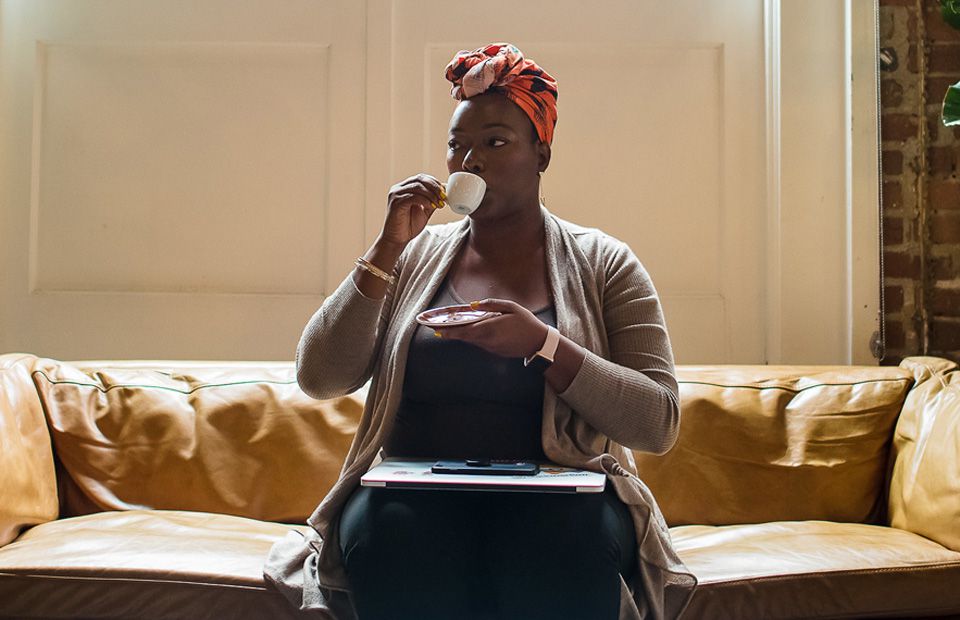
Technology
Omoju Miller—Tech Veteran, Leader, and Volunteer Advisor to the Obama Administration—on The Crucial Role of Creativity in the Tech Industry
"If you are in an environment where you feel marginalized, leave. Don’t try to change it. Go and look for a place that sees you and lets you be you."
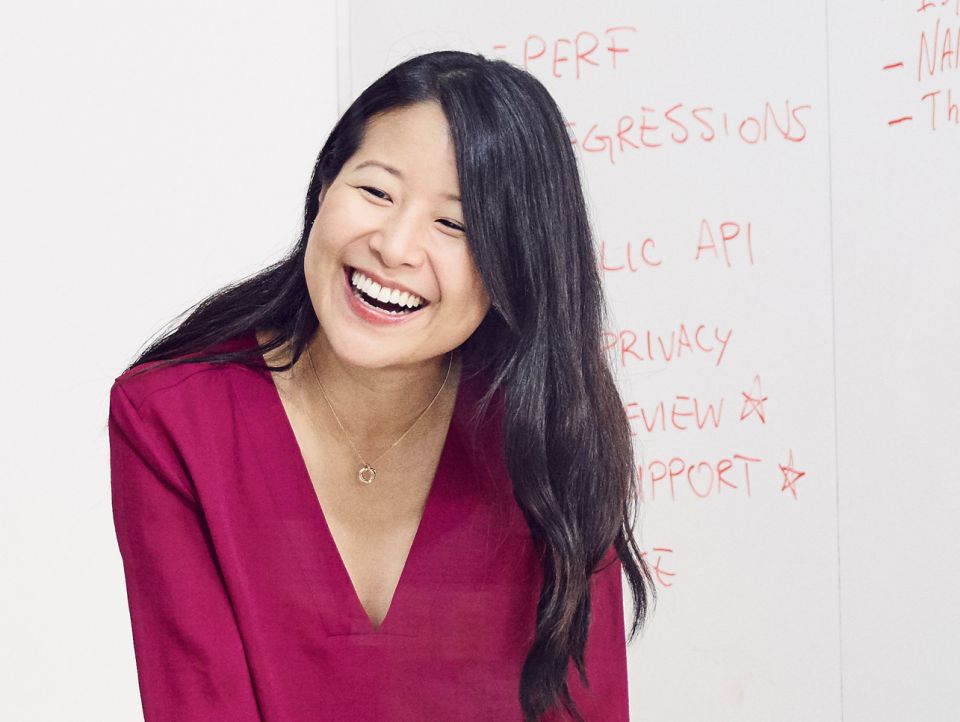
Technology
Sharing Stories as a Software Engineer
We sat down with Apple software engineer Emilie to learn about her day-to-day working at Apple along with what it takes to run the perfect meeting and her favorite ways to unwind.
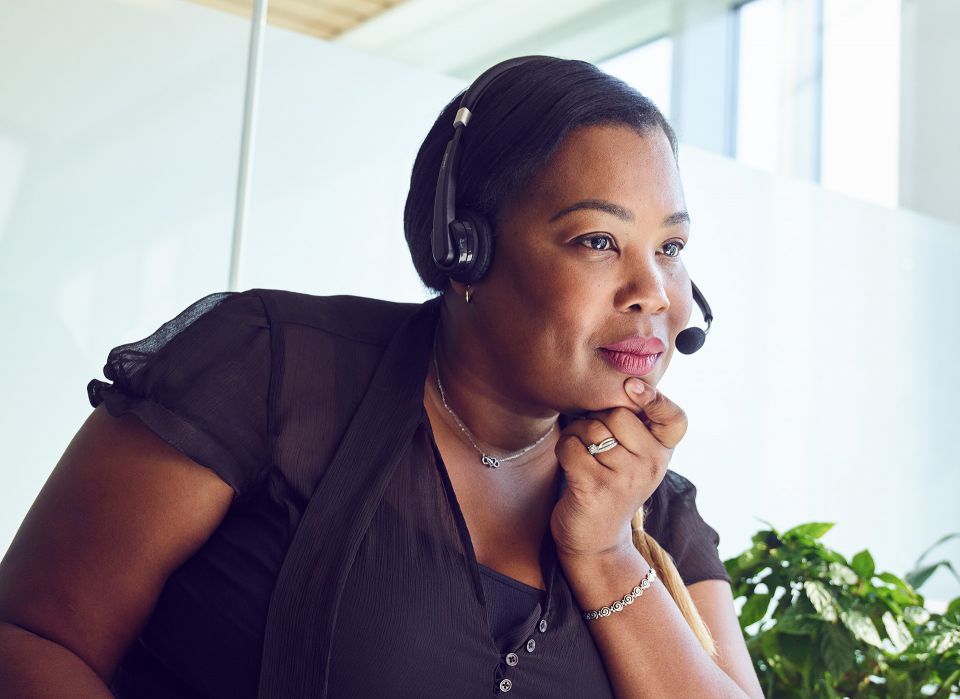
Technology
Creating Impact with Apple
We sat down with Apple's Senior Developer Partner Relations Advisor, Cris, to learn about what it takes to create a lasting impact within a large company. She shares a typical day in the life, her favorite book recommendations, and her top four tips to running a meeting.
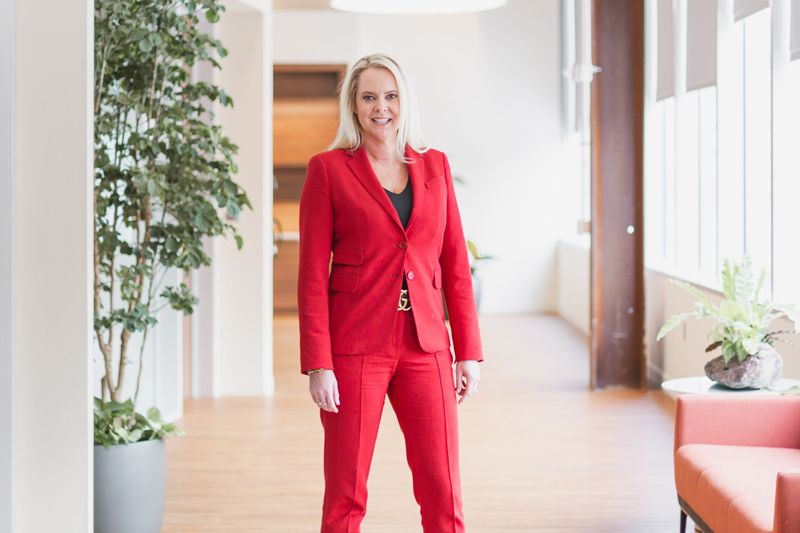
Technology
Salesforce’s Senior Vice President of Sales on Unconscious Bias, Failure, and Innovative Leadership
"Do not be afraid to fail, just bring your best self to the table."
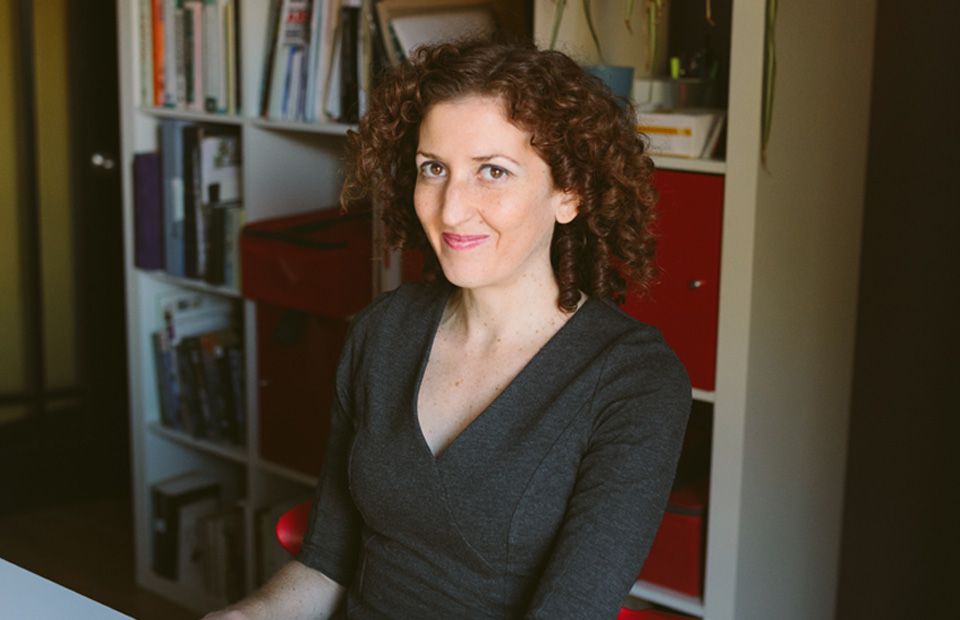
Technology
A Director of Engineering on Tech + Leadership
"I don’t believe in 'having it all'. If you spend more time on one thing, then you spend less time on another thing. All we can do is make choices on how to spend our time."
Get the Best Career Advice Delivered To Your Inbox
Join our newsletter to stay in the loop.
